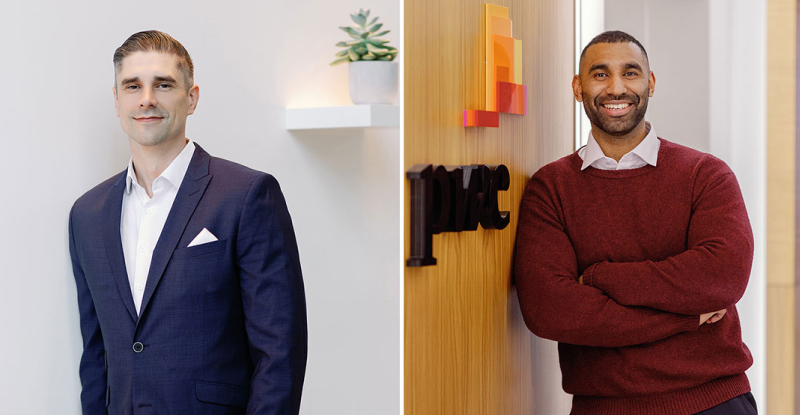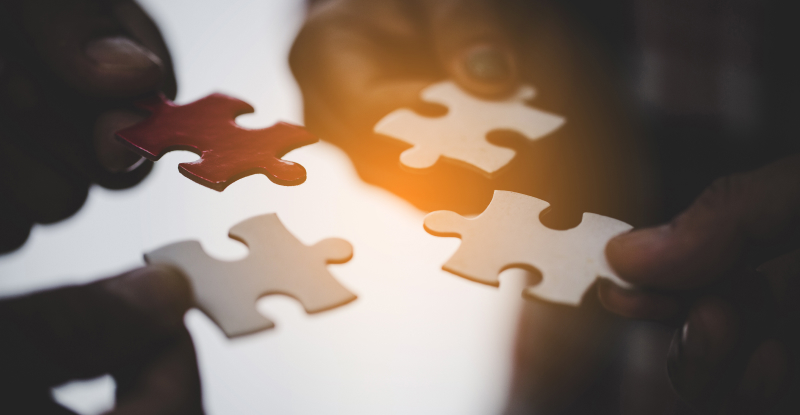
Thrive through challenge, change, and chaos, no matter what.
In this podcast episode, mindfulness expert Trish Tutton speaks with Vince Kanasoot, communications specialist, CPABC about how to use mindfulness technqiues to thrive through challenge, change, and chaos, no matter what. Part of our Coffee Chats with CPABC podcast series.
Learn from Trish and other experts at our virtual conference, CPABC Nexus Days: Business & Leadership Insights on July 25. Join us for a day of personal and professional growth, on topics including mindfulness, neuroscience, negotiating, and AI in accounting. Space is limited, so RSVP today.
If there was a simple, quick, no-cost strategy to enhance your resilience through change, would you want to know about it? The challenges you’re facing aren’t the first you’ve encountered – and they definitely won’t be the last.
Although life can feel overwhelming, building the mindset to thrive is simpler than it seems and is a culmination of small daily actions. There is a powerful strategy that anyone can use to be more resilient through change – mindfulness.
Mindfulness can help you develop a mindset to thrive, so you can weather any change or challenge that comes your way with more ease and confidence.
What is mindfulness?
Mindfulness is the ability to find space between a stimulus and your response. To understand mindfulness, it’s useful to think about a stressful situation. Stress involves two things: the stressor and the actual stress. The stressor is something that occurs in your life that you label as undesirable (often associated with a changing circumstance) and stress is the unpleasant side effects we experience as a result.
An example stressor could be discovering that your PowerPoint was missing slides as you were delivering a presentation to your executives. Panic, brain fog, and embarrassment could be the resulting stress you experience. In this situation, using mindfulness techniques could help you remain calm and continue to deliver an impactful presentation.
Once you understand how to practice mindfulness, you can use it to help you in many situations, including planning for the future. The key to mindfulness is to continue to orient your mind to the present. If you want to achieve future goals, you need to know where you are presently to move forward with intention and purpose.
Related articles
- Four strategies to change how you think about stress
- Change your story — change your mind
- Stand up for your brain
How to build mindfulness
Achieving mindfulness is the result of small daily actions. Meditating, practicing gratitude, and journaling are great ways to build a mindful lifestyle.
When you meditate, you create a quiet space to focus your mind on the present moment. If you’re new to meditation, you can use free resources such as apps and YouTube videos to teach you. Don’t be discouraged if you find it difficult to focus at first. The ability to anchor your mind in the present moment and resist getting carried away by distractions is a skill that you’ll develop with time. Eventually, you’ll have an easier time noticing distracting thoughts without reacting to them, and this will train you to be conscious of your reactions when you’re in moments of stress in real time.
Writing down what you’re grateful for in a journal is another mindfulness technique. Our brains have a negativity bias that highlights the bad things in our lives. When you keep track of what you’re grateful for, you’ll re-train your brain to look for positive things instead. You’ll start to notice positive things more often, because gratitude is like a muscle; when we exercise it, it gets stronger.
Journaling is also an excellent way of clarifying your thoughts so you can determine your goals and track them. This way, you’re not just making goals and forgetting about them. Journaling also helps you set your intention every day. What kind of attitude do you want to show up with? What qualities do you want to share with others? When you set these types of intentions, whether your day goes smoothly or everything gets flipped on its head, you’re in a better position to make wiser choices.
Strengthening your resilience
Meditating, practicing gratitude, and journaling help your mind stay present and over time, this will build your resilience. However, a lack of time often prevents people from doing these things.
Try starting small and building your way up, for example, by meditating for one minute each day at first. This is something achievable for everyone. Once you realize you can do this, you might extend this to two minutes a day, then three, and so on. You’ll realize that the time is there – it just requires a mindset shift.
As with anything, the more you practice mindfulness, the better you’ll get at it. Don’t get discouraged if you hit bumps in the road. We’re often the most critical of ourselves, so treat yourself with kindness and understanding, and pick up where you left off each time. Every step counts and you’ll see that over time, your ability to thrive through challenges will noticeably improve and you’ll amaze yourself with what you can accomplish. You can become unshakeable!
Trish Tutton is a speaker and mindfulness teacher. You can find her as a teacher on the free meditation app Insight Timer, and she is the author of Mindful Mornings Journal.



